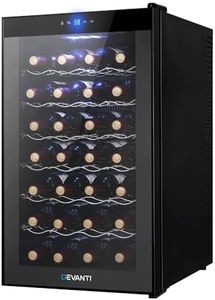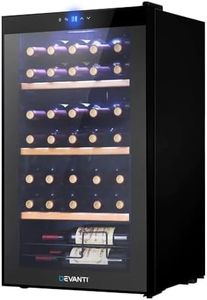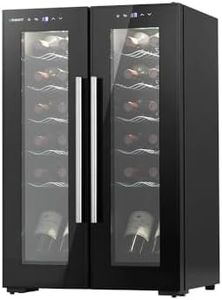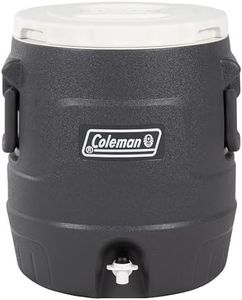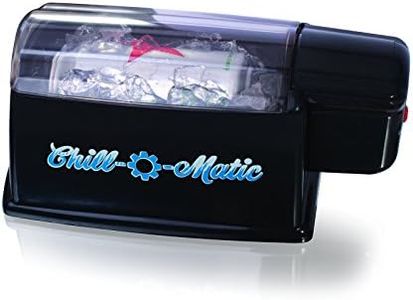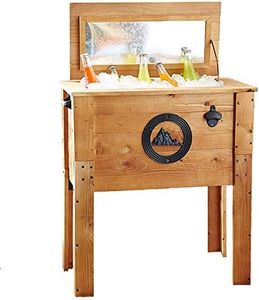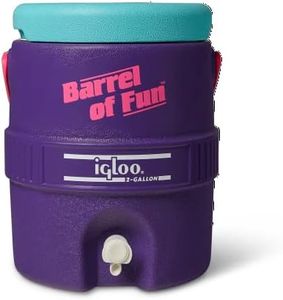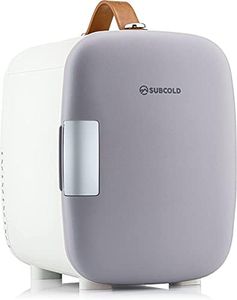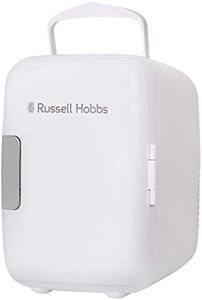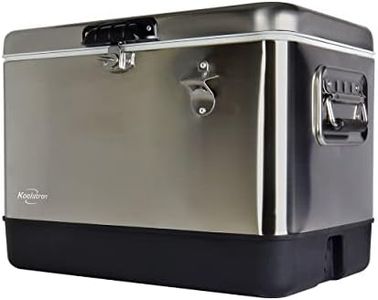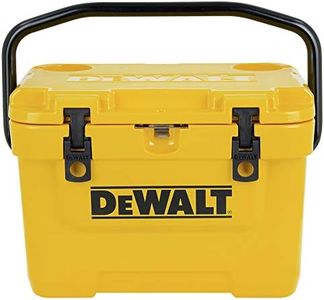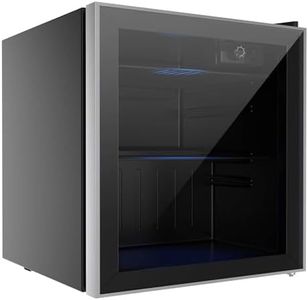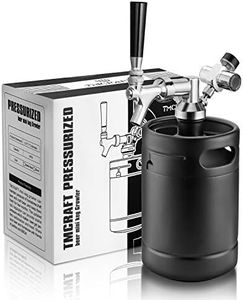We Use CookiesWe use cookies to enhance the security, performance,
functionality and for analytical and promotional activities. By continuing to browse this site you
are agreeing to our privacy policy
10 Best Beverage Coolers
From leading brands and best sellers available on the web.By clicking on a link to a third party's website, log data is shared with that third party.
Buying Guide for the Best Beverage Coolers
Choosing a beverage cooler is all about understanding your storage needs, available space, and the type of drinks you want to keep chilled. These appliances range from compact models meant for a few cans to larger units that can store an extensive wine collection. Before you shop, think about where you'll place the cooler, how many beverages you typically need to cool, and whether you'll be storing just cans, bottles, or a mix. This will help narrow down your choices to a few that meet your practical and lifestyle needs.CapacityCapacity tells you how many cans or bottles the beverage cooler can hold at once and is usually measured in cans, bottles, or liters. This specification is important because it directly affects how much you can store and how efficiently you’ll be able to keep your drinks cold. Coolers generally range from small countertop designs holding around a dozen cans to larger ones storing over a hundred. If you only need to cool a few drinks for personal use or a small gathering, a smaller capacity will suffice. For frequent entertainers or those with larger drink collections, opt for higher capacity. Think about your usual habits and the occasions you'll be using your cooler for, and choose one that won't leave you running out of space or feeling like it's wasted energy on empty shelves.
Temperature RangeTemperature range refers to how cool or cold the appliance can get, and it’s key for ensuring your drinks are at the ideal temperature for serving. Some beverages, like craft beers or certain wines, have specific storage temperature needs. Among coolers, basic models might chill between 39-55°F (4-13°C), while some dual-zone units offer 2 separate compartments with different ranges for wine and carbonated drinks. If you only chill soft drinks, a standard range works fine, but wine and specialty beverage lovers should look for coolers offering precise control and lower or divided temperature zones.
Dimensions and DesignDimensions tell you how much space the cooler takes up, making them crucial for planning where the unit will go in your home. Measure your available space carefully if you’re setting it under a counter, in an office, or a particular room corner. Coolers come in freestanding and built-in (undercounter) styles, so knowing which fits your intended location matters. Additionally, design features like glass doors, interior lighting, and shelving adjustability can make accessing or displaying drinks easier and more attractive, so think about how much visibility and style matter to you.
Shelving Type and AdjustabilityShelving type and adjustability refer to how the interior space is organized and whether the shelves can be moved to fit different can or bottle sizes. Fixed wire shelves are common in basic models, while adjustable or slide-out shelves make it easier to store larger bottles or organize your drinks for quick access. If you plan to store a variety of drink sizes or prefer a neat, customizable display, choose a cooler with adjustable shelving. If you always buy the same size cans or bottles, fixed shelves might be just fine.
Energy EfficiencyEnergy efficiency shows how much electricity the cooler uses during operation. Efficient models save you money long-term and are better for the environment. Some beverage coolers highlight energy efficiency with certification labels, while others may simply list power consumption in kilowatt-hours. If you plan on having the appliance running constantly, looking for energy-saving models can be beneficial. For occasional use, efficiency is less critical but still worth considering if you want to keep costs and your carbon footprint down.
Noise LevelNoise level describes how loud the cooler is during regular operation, often measured in decibels (dB). This is especially important if the cooler will be placed in quiet areas like bedrooms, home offices, or entertainment spaces. Quieter models will go unnoticed, while noisier ones might be distracting when the compressor runs. If silence is golden in your chosen spot, aim for low-noise coolers. If the cooler will be in a noisy kitchen, garage, or bar area, noise may not be as much of a concern.

